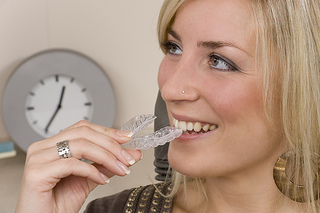How Sedation Dentistry Can Help You Overcome Dental Anxiety
November 4th, 2014

Putting off your dental visit to Cardinale Dentistry because of fear or anxiety only increases the potential for tooth decay or gum problems. At our office, Dr. Vincent Cardinale and Dr. Chris Moody and our team offer solutions that allow you to relax, without any pain, so you can keep your mouth healthy. Our solutions can help with many different anxiety issues for both adults and children.
Help with minor anxiety
Nitrous oxide is an excellent choice for most patients. Sometimes referred to as laughing gas, nitrous oxide can be regulated to provide you with the amount of sedation you need. When used before a local anesthetic, the injection will not be uncomfortable and you should not notice any pain during your procedure.
If you plan to use nitrous oxide, you can drive yourself to your appointment. In most cases, you will be fine to drive after your treatment: the sedation wears off quickly. Nitrous oxide can also be used along with other sedation techniques to produce a higher level of sedation.
Oral sedatives are available in a liquid or pill form. If you experience moderate anxiety levels, you can be given a tablet to take before your appointment. This type of sedation will be beneficial in relieving the anxiety that can build before your procedure. However, if you choose this method, you cannot drive yourself to your appointment.
Help with major dental anxiety
If you experience extreme levels of stress and anxiety about dental treatment, you may wish to discuss deep sedation or general anesthesia. With these techniques, you will be barely conscious or unconscious during your procedure. You will not feel discomfort or pain. Once you have experienced dentistry with a sedation technique, your anxiety level may decrease on its own.
People are not born with the fear of a dental exam. Unfortunately, most anxiety issues are due to a bad dental experience or childhood trauma. Sometimes anxiety comes from listening to the tales of others, who may have exaggerated their story. Talk to Dr. Vincent Cardinale and Dr. Chris Moody and our team about your dental concerns or fears. Let us help you so you can get the dental care you need for a healthy mouth for life.
For more information about overcoming dental anxiety, or to schedule an appointment with Dr. Vincent Cardinale and Dr. Chris Moody, please give us a call at our convenient Naples, FL office!




